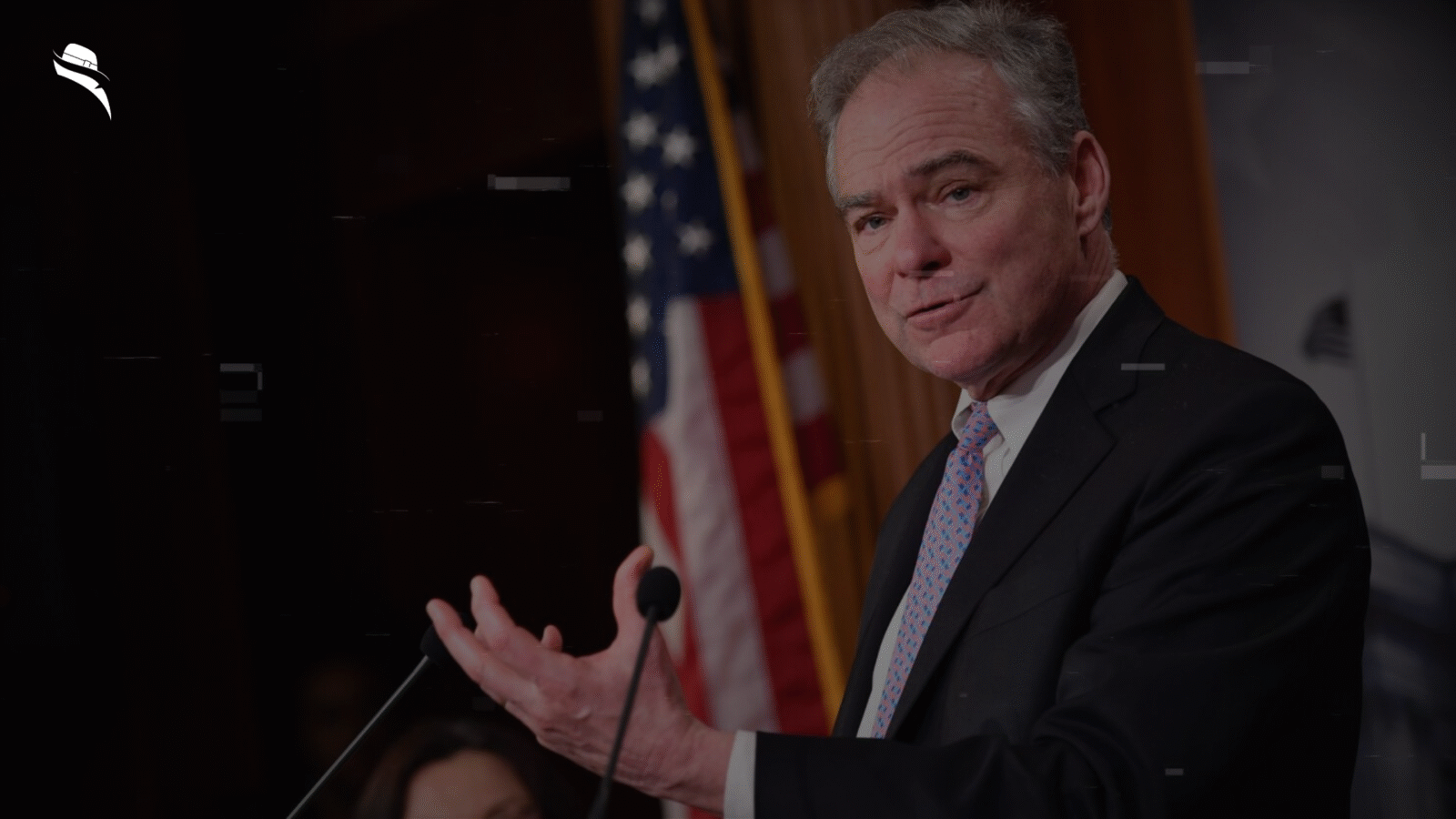Tim Kaine Stance on Israel maintains a moderate position with a lifetime score of 90% on Israel-related policies. Since his first election to the U.S. Senate in 2012, the Virginia Democrat has balanced traditional support for Israel with occasional criticism on specific policies. While serving on key committees, including Foreign Relations and Armed Services, Kaine has established himself as an influential voice on Middle East affairs.
Tim Kaine’s stance on Israel reflects his broader approach to foreign policy, where he tends to take centrist positions rather than aligning with progressive viewpoints. Furthermore, his political prominence dates back to his term as Virginia’s governor from 2006 to 2010, providing him with substantial experience in leadership roles. Notably, Kaine demonstrated his foreign policy independence during the 2015 Iran nuclear deal debates and was among the first Democratic senators to boycott Prime Minister Netanyahu’s congressional address that same year.
Tim Kaine Stance on Israel
Throughout his political career, Senator Kaine has developed a nuanced approach to Israel-Palestine relations. His positions reflect both support for Israel’s security and advocacy for Palestinian rights in a complex geopolitical landscape.
Support for a two-state solution
Senator Kaine consistently advocates for a two-state solution as the only viable path to lasting peace between Israelis and Palestinians. He believes this approach best ensures Israel’s future as both Jewish and democratic, alongside a sovereign Palestinian state. As a member of the Senate Foreign Relations Committee, Kaine has repeatedly emphasized that direct negotiations between the parties remain essential for achieving sustainable peace in the region.
Opposition to the U.S. embassy move to Jerusalem
When the Trump administration announced plans to relocate the U.S. embassy from Tel Aviv to Jerusalem, Kaine voiced concerns about the timing and implementation. He argued that such a significant diplomatic shift should occur within the context of broader peace negotiations, not as a unilateral action. In his view, the embassy move complicated peace efforts by appearing to prejudge final status issues that should be determined through bilateral talks.
Support for Israel’s right to self-defense
Despite his criticisms of certain Israeli policies, Kaine firmly supports Israel’s right to defend itself against threats. He has consistently backed measures that strengthen Israel’s security capabilities, especially in response to rocket attacks from militant groups. Nevertheless, he also encourages proportionality in military responses to minimize civilian casualties.
Criticism of Hamas and the unity government
Kaine has taken a firm stance against Hamas, condemning its terrorist activities and governance in Gaza. He has expressed deep concerns about Palestinian leadership decisions, particularly regarding unity governments that include Hamas. Additionally, he has criticized Palestinian Authority payments to families of those who commit violent acts against Israelis.
Support for Iron Dome funding
As a strong proponent of Israel’s defensive capabilities, Kaine has voted to fund the Iron Dome missile defense system. He views this technology as crucial for protecting Israeli civilians from rocket attacks and as a stabilizing factor that prevents wider regional conflicts. His support for Iron Dome reflects his broader commitment to Israel’s security interests.
Tim Kaine Israel voting record highlights
Kaine’s voting record demonstrates his balanced approach to Israel-related legislation. He has supported security assistance packages yet occasionally opposed measures he considers detrimental to peace prospects. Moreover, he has backed resolutions condemning anti-Israel bias in international forums but remains willing to question policies he believes undermine a two-state solution.
Legislative Actions on War and Military Force
Beyond his positions on Middle Eastern affairs, Senator Kaine has championed congressional oversight in matters of war and military force, consistently advocating for legislative checks on executive power.
Repeal of the 2002 Iraq AUMF
As a leading voice on war authorization reform, Senator Kaine spearheaded bipartisan legislation with Senator Todd Young (R-IN) to repeal both the 1991 and 2002 Authorizations for Use of Military Force (AUMFs) against Iraq. In March 2023, this landmark bill passed the Senate with a substantial 66-30 vote, marking the first time in over five decades that the Senate voted to repeal an AUMF. Kaine has persistently pushed for this repeal since entering the Senate in 2013, arguing that these outdated authorizations could be misused as “blank checks” for military action.
Views on executive war powers
Senator Kaine firmly believes Congress must play an assertive role in decisions related to war and peace. Accordingly, he has introduced bipartisan legislation to revise the War Powers Resolution of 1973 and replace the open-ended 2001 AUMF with a narrower authorization. His goal remains clear: preventing presidents from committing American forces to conflict without congressional approval. In February 2020, the Senate passed his bipartisan war powers resolution aimed at preventing escalation with Iran absent congressional authorization.
Support for NATO commitments
In December 2023, Kaine’s bipartisan bill with Senator Marco Rubio (R-FL) to prevent any U.S. president from unilaterally withdrawing from NATO was signed into law. This legislation explicitly requires Senate approval or an Act of Congress before any president can suspend, terminate, or withdraw U.S. membership from the alliance. Kaine has repeatedly emphasized NATO’s crucial importance, subsequently highlighting how Putin’s war in Ukraine and Finland’s accession demonstrate the alliance’s strength.
Opposition to unilateral military actions
Throughout his tenure, Kaine has consistently opposed presidents taking unilateral military action without congressional consultation. He argues that “war is too big an issue to leave to the moods and the whims and the daily vibes of any one person”. In June 2025, Kaine introduced another war powers resolution requiring explicit congressional authorization before U.S. forces could engage in hostilities against Iran, further reinforcing his principled stance on war authorization.
Foreign Policy Controversies and Bipartisan Moves
Senator Kaine has emerged as a key figure in several controversial foreign policy debates, often taking principled stances that cross partisan lines.
Support for the Iran nuclear deal
In 2015, Kaine became a crucial advocate for the Joint Comprehensive Plan of Action (JCPOA) with Iran. He described the agreement as “a dramatic improvement over the status quo in improving global security”. As Iran’s nuclear program had continued advancing despite sanctions, Kaine argued the deal would prevent Iran from obtaining sufficient uranium for a bomb for at least 15 years. Importantly, he maintained the agreement was “far preferable to any other alternative, including war”.
Opposition to Netanyahu’s 2015 speech
Simultaneously, Kaine took a controversial stand by boycotting Israeli Prime Minister Benjamin Netanyahu’s March 2015 address to Congress. He considered the timing “highly inappropriate” given upcoming Israeli elections. In fact, Kaine initially worked behind the scenes to delay the speech. When these efforts failed, he became among the first Democratic senators to announce they would not attend.
Criticism of U.S. arms sales to Israel
In recent years, Kaine has questioned certain U.S. weapons transfers to Israel. In December 2023, he criticized the Biden administration’s USD 147.50 million arms sale that circumvented congressional approval. He argued that “unnecessarily bypassing Congress means keeping the American people in the dark”.
Co-sponsorship of human rights legislation
Throughout his Senate career, Kaine has co-sponsored various human rights initiatives across party lines. His bipartisan approach reflects his commitment to both international security and humanitarian principles.
Relationship with AIPAC and Pro-Israel Lobby
Senator Kaine’s political funding and alliances reveal his complex positioning within the Israel policy landscape. His approach balances traditional pro-Israel support with occasional policy critiques.
Campaign contributions from pro-Israel groups
Financial data shows Kaine has received $602,265 from pro-Israel sources throughout his political career. This places him 47th among all senators in pro-Israel contributions since 1990. Comparatively, he received approximately $416,000 from defense contractors, illustrating how security and Middle East policy interests often intersect in campaign financing.
Endorsements from J Street
Unlike many colleagues who rely primarily on AIPAC support, Kaine enjoys endorsements from J Street, which describes him as a “Truman Democrat, committed to making Israel a lasting home for the Jewish people that is safe, secure, and at peace with its Palestinian neighbors”. J Street particularly values his support for “an active role for the United States in achieving a two-state solution”.
Balancing AIPAC ties with progressive values
Within the Senate’s complex pro-Israel landscape, Kaine has occasionally challenged AIPAC positions. In a closed-door briefing with AIPAC leadership during the 2014 Gaza conflict, he expressed concern that Israel’s policies might undermine two-state solution prospects. Senator Schumer reportedly criticized this stance. Yet Kaine has maintained credibility across the spectrum by co-sponsoring the US-Israel Strategic Partnership Act even as he questioned certain Israeli government decisions.
Conclusion
Senator Tim Kaine stands out as a nuanced voice on Israel and broader foreign policy matters. Throughout his tenure, Kaine has charted a middle path between unwavering support for Israel’s security and thoughtful criticism of specific policies when necessary. His consistent advocacy for a two-state solution demonstrates his belief that both Israeli and Palestinian interests must be addressed for lasting peace.
Kaine’s work extends beyond Middle Eastern affairs. His leadership on war powers reform reflects a deep commitment to constitutional principles regarding military action. The successful bipartisan passage of legislation repealing outdated AUMFs showcases his effectiveness as a legislator who builds consensus across party lines.
Despite occasional breaks with mainstream Democratic positions, Kaine maintains credibility with diverse constituencies. His willingness to boycott Netanyahu’s speech while simultaneously supporting critical security measures like Iron Dome funding illustrates his independent approach to complex geopolitical challenges.
Financial support from both traditional pro-Israel groups and organizations like J Street further reflects Kaine’s balanced stance. These relationships allow him to navigate contentious debates while remaining true to his core principles on human rights, security, and peace.
Senator Kaine ultimately embodies a pragmatic approach to foreign policy that values diplomacy, congressional oversight, and human rights. His career demonstrates how thoughtful engagement with difficult international issues can transcend partisan politics while still maintaining clear moral and strategic positions. Such balanced leadership proves increasingly valuable in an era defined by polarization and global instability.
FAQs
Q1: What is Senator Tim Kaine’s position on Israel?
Senator Tim Kaine maintains a generally pro-Israel stance, supporting Israel’s right to self-defense and security assistance programs like Iron Dome. However, he also supports a two-state solution and has expressed concerns over some Israeli policies, including settlement expansion and unilateral actions such as the U.S. embassy move to Jerusalem.
Q2: Did Tim Kaine support the move of the U.S. embassy to Jerusalem?
No. Senator Kaine opposed the Trump administration’s decision to move the U.S. embassy to Jerusalem, arguing it should have been done as part of a comprehensive peace process, not as a unilateral decision.
Q3: What is Tim Kaine’s stance on the Israel-Palestine conflict?
Kaine advocates for a negotiated two-state solution, emphasizing the need for both Israeli security and Palestinian sovereignty. He supports direct negotiations and has condemned acts of terrorism while also pushing for proportional military responses to avoid civilian harm.
Q4: Does Tim Kaine support Iron Dome funding for Israel?
Yes. Senator Kaine has consistently supported funding for Israel’s Iron Dome missile defense system, viewing it as vital to protecting Israeli civilians and preventing broader regional escalation.
Q5: How has Senator Kaine voted on U.S. military actions in the Middle East?
Kaine is a strong advocate for congressional oversight of military force. He co-led efforts to repeal outdated war authorizations (like the 2002 Iraq AUMF) and has introduced legislation to curb unilateral executive military actions, especially regarding Iran.
Q6: Did Tim Kaine support the Iran nuclear deal?
Yes. Senator Kaine supported the 2015 Joint Comprehensive Plan of Action (JCPOA), calling it a significant improvement over the status quo. He argued it would prevent Iran from acquiring a nuclear weapon for at least 15 years and reduce the likelihood of war.
Q7: Was Senator Kaine involved in boycotting Netanyahu’s 2015 speech to Congress?
Yes. Kaine was one of the first Democratic senators to publicly boycott Israeli Prime Minister Benjamin Netanyahu’s 2015 address to Congress, citing its inappropriate timing and its potential to politicize U.S.-Israel relations ahead of Israeli elections.
Q8: What is Senator Kaine’s relationship with AIPAC and other pro-Israel groups?
Kaine has received significant contributions from pro-Israel organizations, including AIPAC supporters. However, he is also backed by J Street, a progressive pro-Israel group advocating for a two-state solution. This reflects his more moderate and independent positioning within pro-Israel politics.
Q9: Has Senator Kaine criticized U.S. arms sales to Israel?
Yes. In 2023, Kaine criticized the Biden administration’s $147 million arms sale to Israel, particularly because it bypassed congressional approval. He stressed the importance of transparency and legislative oversight in such matters.
Q10: What role does Tim Kaine play in U.S. war powers legislation?
Kaine is a leading voice in reforming U.S. war powers. He has co-sponsored bipartisan legislation to revise the War Powers Resolution, repeal outdated AUMFs, and ensure that the president cannot engage in hostilities without congressional approval.







Leave a Reply